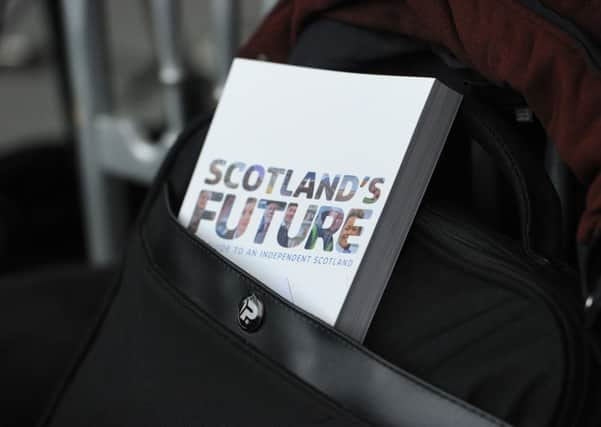Scottish independence: Scotland’s independence day


The date
The Scottish Government has a date in mind for independence - 24 March 2016.
The white paper on independence claims that Scotland can negotiate its independence from the United Kingdom, drafting and amending existing treaties and laws, as well as achieving accession to a range of international bodies such as the EU, Nato and the IMF, in the 18 months between the referendum date and the independence date.
Advertisement
Hide AdAdvertisement
Hide AdA constitutional convention would be established after independence, and the Scottish Government anticipate some negotiations - such as those around Trident - to continue after independence day.
Timescale
The Scottish Government state that the average timescale from referendum to independence for the 30 countries which have declared independence since World War Two is 15 months.
That list includes a host of former British colonies such as Jamaica, and a number of European countries including FYR Macedonia and Montenegro.
Montenegro voted for independence in May 2006, declaring its independence and joined the United Nations in June.
However, it should be noted that its membership of key international bodies was not in place at the time of independence.
Montenegro joined the IMF and World Bank in January 2007, and remains an EU candidate nation, although it is involved in the EU’s Schengen travel area and - ironically from a Scottish perspective - unilaterally uses the Euro as its currency.
Scotland and Europe
Writing in The Scotsman, former European Parliament president Pat Cox has suggested that Scotland would be welcomed into the EU in a “pragmatic” fashion, without lengthy negotiations or horsetrading.
Graham Avery, Senior Adviser at the European Policy Centre, has described Scotland leaving the EU as a ”legal nightmare” for other European countries. These two opinions reflect the current position of the Scottish Government - that Scotland’s integrated role within a host of international bodies will necessitate speedy negotiations.
Possible delays
Advertisement
Hide AdAdvertisement
Hide AdThe UK government claim that Scottish independence could make for more time-consuming and difficult negotiations, due to Scotland’s probable status as a new state in the eyes of the international community.
The UK government claim that England, Wales and Northern Ireland will be treated as the ‘continuator state’ if Scotland votes ‘Yes’, leaving Scotland to start from scratch when it comes to international treaties and negotiations.
Robert Hazell of the Constitution Unit at University College London has pointed to another possible stumbling block - the 2015 UK General Election. Writing on the UCL Constitution Unit blog, Professor Hazell suggests that the negotiations and debate could take up to 36 months to complete.
He suggests that Westminster will be reticent to rush through legislation on independence, and adds that UK politicians will inevitably pause negotiations for election campaigning.